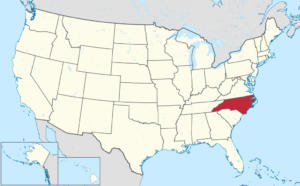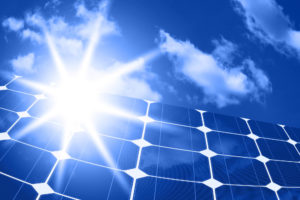 As the world becomes more aware of the pressing need to shift toward renewable energy, North Carolina stands out in the United States for its impressive adoption of solar energy. The state has implemented several initiatives to encourage individuals and businesses to embrace green energy, including incentives, rebates, and tax reductions. In this article, we will dive deeper into North Carolina’s laws and regulations for installing and using solar panels, highlighting the state’s dedication to a more sustainable future.
As the world becomes more aware of the pressing need to shift toward renewable energy, North Carolina stands out in the United States for its impressive adoption of solar energy. The state has implemented several initiatives to encourage individuals and businesses to embrace green energy, including incentives, rebates, and tax reductions. In this article, we will dive deeper into North Carolina’s laws and regulations for installing and using solar panels, highlighting the state’s dedication to a more sustainable future.
Contents
- 1 Key Takeaways
- 2 Net Metering
- 3 Federal Solar Tax Credit
- 4 Property Tax Exemption
- 5 Duke Energy Solar Panels Rebates
- 6 Revolving Loan Options
- 7 Homeowners Association Restrictions
- 8 Case Study: Residential Solar Installation in North Carolina
- 9 Expert Insights From Our Solar Panel Installers About Solar Panel Laws in North Carolina
- 10 Experience Solar Excellence with Us!
Key Takeaways
- North Carolina has seen a notable rise in its solar power capacity, positioning it as one of the leading states in the United States for installed photovoltaic (PV) systems.
- The state offers incentives like net metering, federal solar tax credits, and property tax exemptions to encourage solar panel adoption, making it financially advantageous for residents.
- Utility provider Duke Energy offers substantial rebates for solar system installation. At the same time, laws allow for low-interest loans, protect homeowners’ rights to go solar and limit Homeowners Associations’ ability to hinder solar panel installation.
Net Metering
Due to its bold and aggressive legislation on solar laws, North Carolina has also set up robust net metering policies. The state allows you to connect to the grid and start enjoying the benefits of net metering.
Net metering is a system where a residence with solar power can still be connected to the grid. If your solar panel produces more power than your household needs, the extra power is adopted by the grid and used to power other areas on the grid.
When the grid adopts your excess power, you earn solar credits. When you use more energy than your solar panel can produce, or your solar panel isn’t producing enough power to support your household, your solar credits can be used to reduce your electricity bill.
Net metering allows you to use the grid like a big battery; it adopts extra power produced and not used, and when you need more power than your panel can make, you get it on demand.
These solar credits can be rolled over to the subsequent months if unused. Note that after a year, all solar credits expire. It’s wise to size your solar system to fit the needs of your household perfectly.

Federal Solar Tax Credit
Through the Investment Tax Credit (ITC), the federal government reduces the tax for your solar system by 30%. This means you can save 30% of the initial capital you have budgeted to acquire a solar system for your household.
This reduces the cost of going solar because solar panels are expensive. This incentive and more savings are making residents in North Carolina go the solar way.
This tax credit is only available to clients buying a whole solar system at once, either with cash or through a loan.
Property Tax Exemption
Installing a solar power system in North Carolina will increase the value of your house. Households are required to pay property tax to local authorities. The value of the house determines how much tax you pay. When the house’s value increases, you are sure to pay extra in terms of property tax.
North Carolina has completely waived solar panels and solar systems from being included in property taxes. This means that households don’t have to pay taxes for installing solar PV. This is beneficial because your house will increase in value but still pay fewer taxes. You will have more savings and more reasons to go solar in the long run.
Duke Energy Solar Panels Rebates
Duke Energy is a utility provider in North Carolina, and they offer their customers rebates for going solar. This means that the utility provider is paying their customers for installing solar systems in their homes.
The rebate program offers a $0.60 per Watt rebate for customers with solar systems rated 10 kilowatts and below. This means that a customer with a 6-kilowatt system will receive $3,600.
For non-residential customers and commercial entities, the rebate program offers $0.50 per Watt and can receive a maximum of $50,000.
Non-profit customers receive $0.75 per Watt with a maximum payout of $75,000.
Such incentives are driving the demand for the solar system up the roof. Households are getting massive savings from the onset of purchasing without factoring in the long-term savings that solar systems generate.
Revolving Loan Options
North Carolina has passed laws that allow cities and counties to offer low-interest loans for solar panels. This law has enabled easy access to solar panels. Even low-income individuals can acquire solar panels for their households due to the availability of low-interest loans.
Solar loan terms can have an interest cap of 8% annually for as long as 20 years. These loans can also be easily renewed, and you can also take a loan to buy upgrades for your solar system. It doesn’t necessarily have to be an initial purchase.

Homeowners Association Restrictions
In North Carolina, the law protects your ability to go solar. This means that zoning and regulatory authorities should not interfere with your household’s ability to install a solar system.
The law also grants the homeowner the right to own and utilize the solar energy that falls into their private property.
Homeowners Associations have been hindering residents all over the country from going solar. They are responsible for making community rules and controlling the aesthetics.
They have refused grant permits to homeowners, allowing them to install solar systems. The law states that a Homeowners Association cannot impose laws that prevent a solar panel’s reasonable use.
Case Study: Residential Solar Installation in North Carolina
Background
Our client, a homeowner in a suburban area of North Carolina, was keen on reducing their carbon footprint and lowering their energy costs. They reached out to Solar Panels Network USA to explore the possibility of installing a solar power system on their property.
Project Overview
The homeowner’s primary objectives were to cut down on monthly electricity bills and contribute to environmental sustainability. Given North Carolina’s favorable laws and incentives for solar energy, the project promised significant financial and ecological benefits.
Implementation
Our team conducted a comprehensive site assessment to determine the optimal placement and size of the solar panels. We designed a 7-kilowatt solar power system tailored to the household’s energy consumption needs. Leveraging the state’s net metering policy, we ensured the system was capable of feeding excess energy back into the grid, thus earning solar credits for the homeowner.
We assisted the client in applying for the federal solar tax credit, which covered 30% of the installation cost. Additionally, we facilitated their application for Duke Energy’s rebate program, securing a rebate of $4,200 for the client.
Results
The installation was completed seamlessly within a few weeks, and the solar power system began operating efficiently. The homeowner immediately started seeing reductions in their electricity bills due to the net metering policy. Over the first few months, the solar credits accumulated, further lowering their utility costs. The property value also increased, thanks to the property tax exemption on solar installations in North Carolina.
Summary
This case study illustrates the substantial benefits of solar panel installation in North Carolina, facilitated by supportive state laws and incentives. The homeowner not only achieved significant savings on their energy bills but also made a positive environmental impact. Solar Panels Network USA’s expertise and comprehensive support ensured a smooth transition to renewable energy, highlighting the value of professional guidance in maximizing the benefits of solar power systems.
Expert Insights From Our Solar Panel Installers About Solar Panel Laws in North Carolina
Understanding the net metering policies in North Carolina is crucial for maximizing the benefits of your solar installation. By feeding excess energy back into the grid, homeowners can significantly reduce their electricity bills. It’s like having an extended battery for your home.
Senior Solar Installer
The federal solar tax credit is a game-changer for many residents considering solar energy. A 30% reduction in the upfront cost can make solar systems more accessible, enabling more homeowners to transition to renewable energy sources.
Lead Solar Consultant
Duke Energy’s rebate program is one of the most attractive incentives in the state. By providing substantial financial support for both residential and commercial installations, it encourages a broader adoption of solar energy and supports North Carolina’s sustainability goals.
Chief Installation Officer
Experience Solar Excellence with Us!
Trust in Solar Panels Network USA, where our seasoned experts deliver top-quality solar solutions for homes and businesses nationwide. With a legacy of countless successful installations and a commitment to sustainable energy, we’re your reliable partner in the solar journey. Ready for a brighter, eco-friendly future? Call us now at (855) 427-0058 and harness the power of the sun!
Map image by Wikimedia Commons User: TUBS / CC-BY-SA-3.0
About the Author
Solar Panels Network USA stands at the forefront of solar energy solutions, driven by a team of seasoned solar engineers and energy consultants. With over decades of experience in delivering high-quality solar installations and maintenance, we are committed to promoting sustainable energy through customer-centric, tailored solutions. Our articles reflect this commitment, crafted collaboratively by experts to provide accurate, up-to-date insights into solar technology, ensuring our readers are well-informed and empowered in their solar energy decisions.

